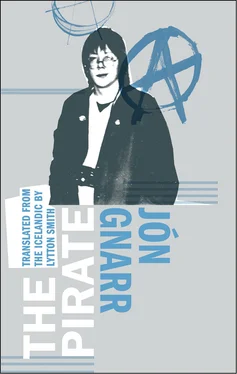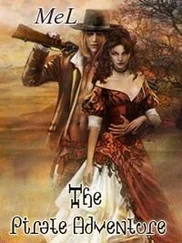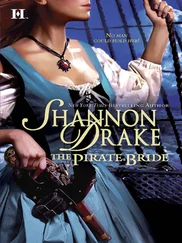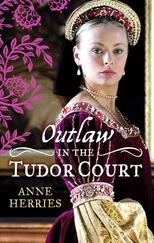“Why do you do this to me?” he asked tearfully.
“I don’t know,” I muttered, like so often before.
“Exactly right! You never know anything!”
The next day a detective came and searched my room. He opened all the drawers and peeked into all the cupboards. He took my Action Man stuff and looked accusingly at me.
“That’s mine,” I muttered.
Then I had to go with him to the Department of Criminal Investigation. My fingerprints were taken. They suspected me of having broken into several other places and believed, among other things, I’d broken into some work shed and trashed it. I was supposed to have broken everything and destroyed things and sprayed a fire extinguisher. I’d never do that. I wasn’t evil. I wasn’t a criminal. I was just a curious kid who liked to see, touch, and smell things. The officer didn’t believe me until I broke down and burst into tears. He stood up, talked to the cops, and I heard him tell them I wasn’t the person they were looking for. I wiped away the tears and snorted through my nose. The officer drove me home. Along the way, he informed me that he had never in all his investigations had to deal with such an idiotic case.
“What exactly were you up to, kid? Who breaks in and steals things just to be able to return them?!”
“I don’t know.”
He asked, with a pitiful tone of voice, as though I was a bit special:
“Is something wrong with you? Breaking and entering to steal from small children. Is this something you plan to continue doing?”
“No.”
“Why did you do it?”
“I don’t know.”
“No. Exactly right.”
Oh we’re so pretty
Oh so pretty we’re vacant
Oh we’re so pretty, oh so pretty we’re vacant
Ah but now and we don’t care
— seX pIstOlS, “pretty vaCanT”
They were going abroad. I saw the travel brochure on the table, so I asked:
“Who’s going abroad?”
“We are,” Mom replied, like she didn’t mean me.
“Where?”
“Bulgaria.”
Bulgaria? I’d never heard of the place until now. I didn’t know where it was. I didn’t even know if it was a country or city.
“When?”
“In July.”
I’d not totally managed to learn the months. I couldn’t remember what they were called or the order they came in. July was summer, so it had to be happening soon. Maybe it was next month.
“Where am I going to be?”
I knew I wouldn’t get to stay home.
“You’re going to the country.”
I thought with horror of my last time in the country. I wouldn’t go back there. I got tears in my eyes at the thought.
“I won’t go back to that hellhole!”
“No,” said Mom, sadly.
I was relieved.
“Can I stay with Runa?”
“No, you can’t stay with Runa.”
I didn’t feel like going to some crappy rural dump and hanging out there. I wanted to go stay with my sister up in Kjalarnes.
“Why can’t I stay with Runa?”
“Because you can’t.”
“Why not?”
“It’s too close to town. And I’m not going to be worrying about you on my holiday.”
“But I won’t do anything.”
Mom looked at me with a resolute expression.
“You’re not going to Runa’s. End of debate. You’re going to the country.”
“Where?”
“You’re going to Þrastarhóli with your aunt Bondi.”
“Where’s that?”
“Up north.”
“North? Whereabouts?”
Mom sighed.
“It’s in Eyjafjörður.”
I wasn’t any better informed about the north of Iceland than about Bulgaria. I had no idea where it was. It was as far off as Farawayistan in Duck Tales . Geography was a closed book to me. I doubted whether I could even point to Iceland on a map. I had a very faint picture of the world in my mind, and I didn’t know directions. I didn’t know, for example, where the sun came up and set. I knew that it was either in the east or the west, but I never remembered which. What little I knew of the Icelandic map was Reykjavík, Vatnajökull, and the Vestfirðir. Out west was, inexplicably, up. The Vestfirðir were fists that grew out of the land. Paradísarhellir, the cave where Hjalti had written his book about Anna from Stóruborg, was out in the east — so too was Suðursveit, though given the name it should have been in the south; that’s where Þórbergur Þórðarson was born and brought up. I was still unclear, though, exactly where “east” was. As for “north,” I hadn’t a clue.
I had driven the ring road with Mom and Dad and Aunt Gunna many years back. Dad was in a hurry, as usual, and drove like crazy. Mom and Gunna chain-smoked, listened to the big car stereo, and sang along excitedly to “The Song of Nína and Geira.” I read Donald Duck . I had no interest in seeing anything or paying particular attention to the environment. I was cold the whole time. It was really cold everywhere. I thought Iceland was ugly and boring. The mountains weren’t like mountains, but more like a pile of rocks. It felt like Mount Esja was everywhere. Sometimes we stopped because they wanted to look at a mountain, or some lake, and take photos. I stayed inside the car. Dad would hurry everyone along. The weather was miserable the whole time, typically rainy and windy. At night, we slept in a tent. Dad pitched camp while we sat inside the car. The cold didn’t seem to have any effect on him. He was out in the cold in just a T-shirt. I lay awake between them and listened to them snore. In the morning, we woke up cold and wet and had asparagus soup and bread for breakfast. Dad heated the soup on a Primus stove while we dried our butts inside the car. We drank the soup out of tins and then continued along gravel roads. Iceland rushed by, blurred and faintly gray through dusty car windows. Everywhere was windy. We stopped to see some waterfalls. They went out to see the falls but instantly came running back to the car, drenched from the water, which had blown directly onto them. When it finally let up and the wind calmed, we hit thick fog. One morning when I crawled cold and wet out of the tent, it was starting to snow.
“Where is Eyjafjörður?” I asked Aunt Gunna.
“In Akureyri. You’ve been there, haven’t you?”
“No.”
“You know where Akureyri is?”
I kept quiet. I had no idea where Akureyri was. It couldn’t be a very interesting place given that I’d supposedly been there and didn’t remember it. I didn’t ask anything else. I was outside time, bewildered, captive in time’s vacuum. It didn’t matter anyway. Mom had made up her mind. The trip was over. We were done driving around Iceland. Nothing about the trip stayed with me, except perhaps conversations between Mom and Aunt Gunna. Gunna would sometimes tell Dad to shut up when he was nagging on and on. That was funny. Dad hung the tent to dry in the garden, and the mattresses and sleeping bags went back up into the attic.
One night, as we were eating dinner, Mom announced that I was going to the country the next day. She packed my clothes into a bag. Very early the next morning, some guy appeared, a guy I didn’t recognize but who was going to drive me.
The journey seemed endless. We drove all day. It was bright, sunny weather. Iceland was just as ugly as the first trip: gray and monotonous. Piles of stone and withered grass, fences and ditches. The farms struck me as ugly. I thought them all alike, unassuming stone houses with corrugated iron roofs. They were silly colors, yellows and blues. Some were even orange. Around them were piles of all kinds of machines for harvesting hay, some tractors, gutted cars. And then pens for cows. I hated farms. I knew the smell of them, the smell of dogs, of sweaty feet, of old potatoes and sweet soup. A cloying, mildewed odor. I tried to imagine the surroundings of the town I was headed to. It’d be like any other rural Icelandic town. I could just imagine the people who lived there. The father was definitely a hick, always unshaven, with gray stubble. He’d be dressed in baggy terylene pants that were way too big on him and were tucked into his boots. He’d be wearing a sweater with holes in it and a blue jacket over the top. He’d definitely own a Land Rover. When he spoke, he’d talk loudly and curse a lot. His wife would be wearing stockings, woolen socks, and a mustard yellow skirt; she’d always be pissed. When she went out, she’d wear the ugliest coat she could find. The farmer’s wife would have the ugliest coat in town. Her windbreaker would be torn here and there so you could see through the lining. Their kids would also be dressed stupidly. The boys would be wearing oversize jeans and rubber boots; the girls, too. They’d strap their pant legs into wool socks and wear work shirts fastened all the way to the neck.
Читать дальше











